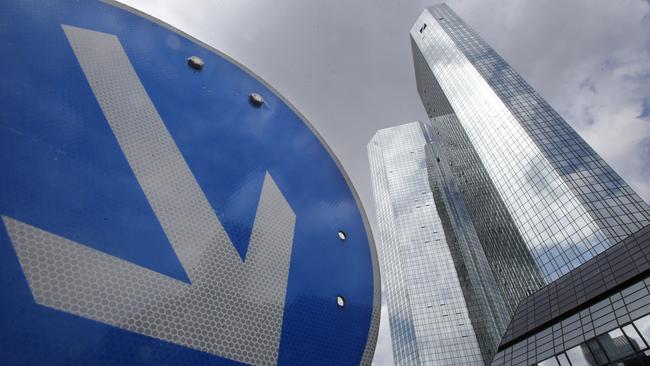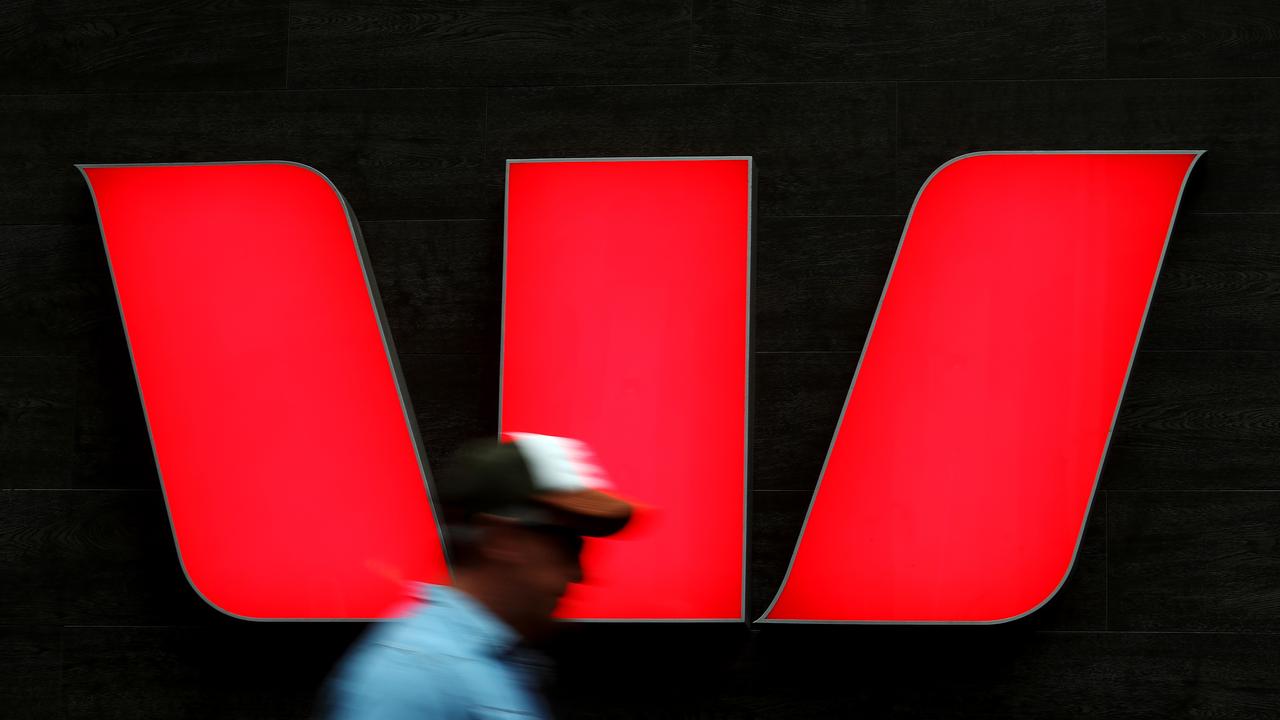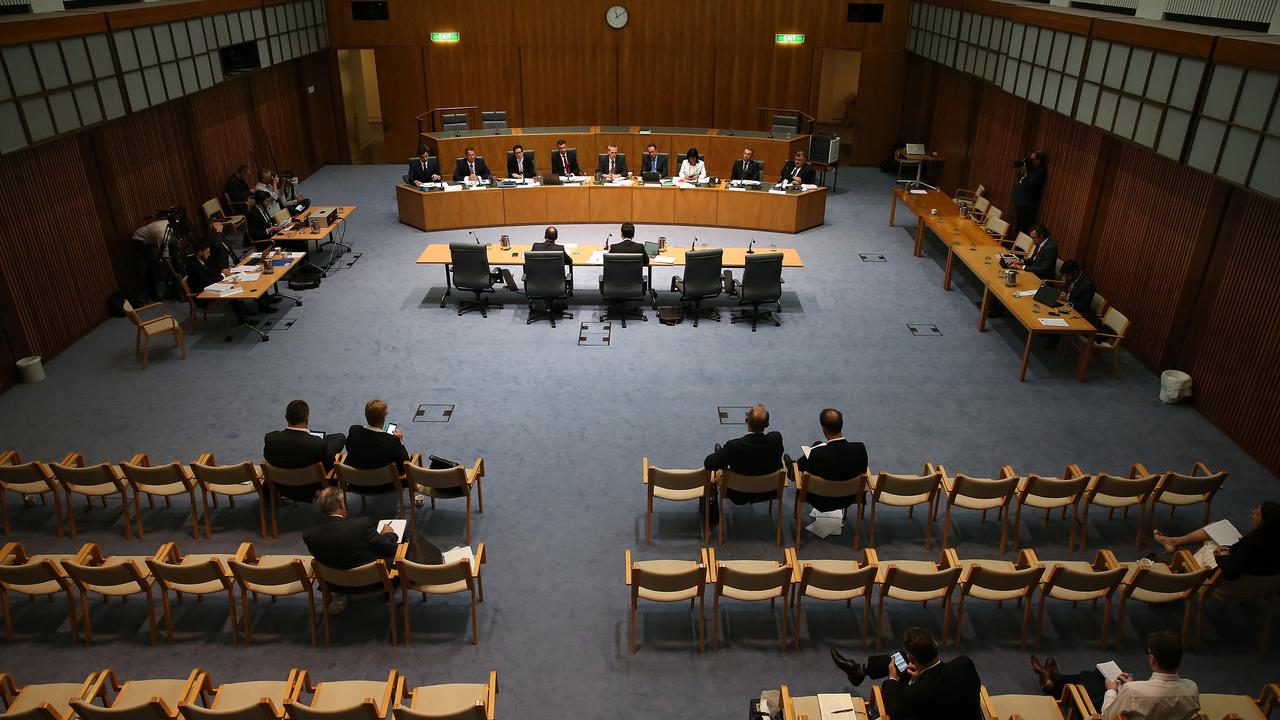Deutsche woes mean world is sailing close to new banking crisis
Jitters over Deutsche Bank could easily turn next week’s grilling of Australian bank CEOs into a global event.

Last night on Wall Street we saw a full frontal attack not only on the shares of the giant German bank Deutsche but also on its hybrid and debt securities.
Some 10 hedge funds that clear derivatives trades with Deutsche Bank have cut their exposure by withdrawing some excess cash, and cutting positions held at the bank.
We all know what actions like that can potentially mean to a bank and the banking system. We have seen it before.
Accordingly, the world is sailing perilously close to another banking crisis. We need cool heads and decisive actions.
And in this environment if our parliamentarians are not very careful they will put the Australian banking system into the eye of the looming storm.
Frankly at any other time I would be a strong supporter of the proposed parliamentary interrogation of our top four bank CEOs. For a long time our banks have done a poor job of explaining themselves. They now have a chance to do it.
Had the inquiry been a month or even a week ago all it would have been was a domestic issue.
But when Commonwealth Bank CEO Ian Narev takes the stand on Tuesday to be followed by the other big banks on Wednesday and Thursday it could easily turn into a global event in a bank jittery world.
When earlier this week I highlighted the deep problems of Deutsche I received a call from an old friend with excellent connections to the global banking scene telling me that not only was I totally correct but I may have understated the risks. About 38 hours later Wall Street got the message and Deutsche Bank was brutally attacked. The shares fell 6.7 per cent and are down 10 per cent for the week and 62 per cent in just over 11 months.
Remember that over the last two or three years Australian banks have gone into the world debt markets and borrowed heavily to help fund our housing boom. In the years leading up to the global financial crisis they did the same thing but that time around they undertook the borrowing on a short-term basis and our banking system was put in jeopardy when the crisis erupted.
This time they have again enjoyed the lower interest rates abroad but they borrowed longer term and with different maturities. We will therefore not have the same problems. But if the world debt markets tighten our banks will need to look to local depositors. In this fear climate any remarks that indicate high Australian banking risk will be multiplied 10 fold.
And to underline what is taking place last week former UK Chancellor of the Exchequer Norman Lamont told the Institute of Directors conference that German banks could be a danger to Europe: “The biggest threat, I think, to Europe is the banking crisis. I think Italian banks are in a very serious situation; I think German banks are probably in a very serious situation, too.”
The shorters understood his message and intensified their Deutsche attack and, according to press reports, eight other European banks are now under attack, including Credit Suisse. My contact in the world-banking arena expects a British bank to be attacked.
As I have explained to readers Deutsche Bank appears to have been concealing deep problems for years. But it is fascinating that it was the US --- where the global financial crisis was triggered --- was the country that is forcing Deutsche to fight for its life.
The US Justice Department wants Deutsche to pay a $US14 billion legal settlement to close out mortgage-securities probes. That $US14bn demand is around the market capitalisation of Deutsche Bank. The bank has little hope of paying such an amount or anything like it.
Deutsche bank will almost certainly sell its asset management and perhaps other operations and may need to raise capital, with some form of backing from the German government.
For the record the bank made this statement:
“Our trading clients are amongst the world’s most sophisticated investors.
“We are confident that the vast majority of them have a full understanding of our stable financial position, the current macroeconomic environment, the litigation process in the US and the progress we are making with our strategy.”
That statement may be accurate but when markets turn against a bank words don’t have much impact.
Footnote: I hope the parliamentarians quiz Ian Narev as to why CBA raised local deposit interest rates when the Reserve Bank reduced official rates, but has since lowered some but not all of them. That issue will not cause world ripples.






